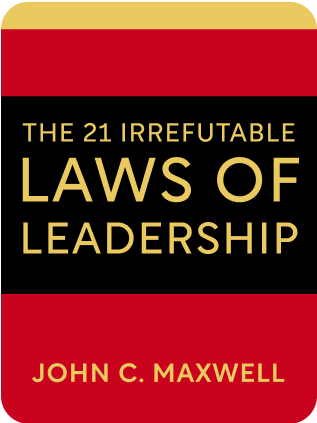

This article is an excerpt from the Shortform book guide to "The 21 Irrefutable Laws Of Leadership" by John C. Maxwell. Shortform has the world's best summaries and analyses of books you should be reading.
Like this article? Sign up for a free trial here .
What is the Law of Legacy? What kind of legacy would you want to leave behind once you’ve resigned from your leadership position?
The Law of Legacy is the final law of The 21 Irrefutable Laws of Leadership by John C. Maxwell. In the words of Maxwell, the Law of Legacy states that “a leader’s lasting value is measured by succession.” He believes that leaders should decide early on what kind of legacy they want to leave behind and then work towards building it while still in the leadership position.
Keep reading to learn about Maxwell’s Law of Legacy and some real-world examples of its application.
The Law of Legacy: Think About Your Lasting Value
Because leaders work with people, including other leaders, they have the potential to influence beyond their own lifetime. For example, many people still admire Gandhi and live by his teachings. Therefore, all leaders should be concerned with succession and legacy.
Clara Boothe Luce came up with the phrase “life sentence.” The sentence both states the goal of your life and describes your legacy. Your “life sentence” will likely change over the course of your life, and as it does, look for things that each of the sentences have in common. This will help direct you toward your legacy. For example, John C. Maxwell started with a life sentence about wanting to be a great pastor. Later, he wanted to be a communicator, writer, and leader. He finally settled on: “I want to add value to leaders who will multiply value to others.” This sentence encompasses all the things he wanted to be over the years and addresses his legacy.
Here are some steps to developing your legacy:
- Decide what your legacy will be early. Consider your sense of purpose, strengths, opportunities and whom you might be able to impact. Some people accept rather than drive their lives—instead choose how you will live your life.
- Start living your legacy while you’re still in your leadership position/still alive. Follow laws #6 (leaders are trustworthy and have good character) and #13 (leaders lead by example). Be what you want to inspire in others.
- Pick successors. Legacy is about people, not things. An inanimate building named after you isn’t going to be able to influence people.
- For example, people can judge how good of a person you are by your grandchildren. You’ve trained your kids, and how well they train your grandchildren is a measure of how well you did with them.
- Create a succession plan. If you’re a good leader, and your successor is a good leader, that’s a good start, but there needs to be a handoff.
- For example, Tom
- Mullins of EQUIP is training his son to be his successor. His son has already taken over many of Tom’s responsibilities, even though Tom is still the leader. This allows his son to practice under Tom’s guidance.
There are four phases of legacy development:
- Solo. Leaders achieve things by themselves.
- Add followers. Leaders are successful when followers do things for them.
- Add other leaders. Leaders are significant when their leaders do things with them.
- Remove original leader. Leaders create a legacy when their leaders are capable of doing things without them.
Example of a Failed Application of the Law: Oscars “In Memoriam” Montage
Every year during the Oscars, the program shows clips of people who have died during the previous year. These people receive different amounts of applause during the montage, but after it’s over, everyone refocuses on the Oscar nominees. People aren’t remembered for their accomplishments; they’re measured by how well their successors continue their work.
Example of a Successful Application of the Law: Mother Teresa
Mother Teresa’s leadership lived on after she died because she developed leaders who would carry on her vision. Her order still welcomes new nuns in a ceremony conducted at her tomb.

———End of Preview———
Like what you just read? Read the rest of the world's best book summary and analysis of John C. Maxwell's "The 21 Irrefutable Laws Of Leadership" at Shortform .
Here's what you'll find in our full The 21 Irrefutable Laws Of Leadership summary :
- Why working with people is the only way to do meaningful work
- How to become the kind of person that can get things done
- Why you don't need to be good at all the laws of leadership to be a good leader






